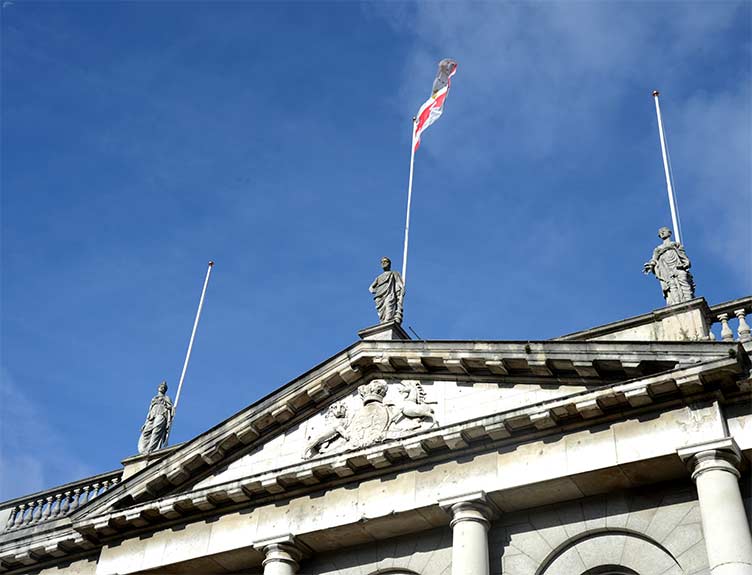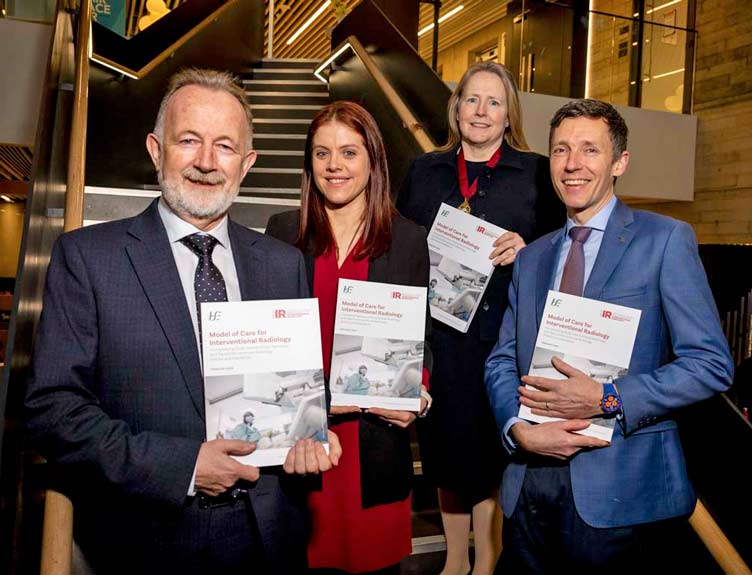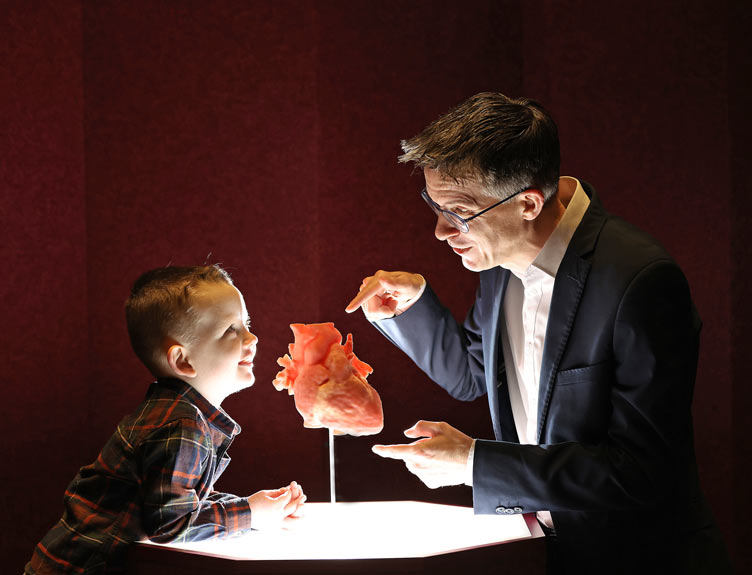RCSI COVID-19 projects funded under all-Ireland research collaboration
RCSI-led research on a disinfecting fog to prevent the spread of COVID-19 indoors and a project to investigate how COVID-19 damages blood vessels have been funded under a new all-Ireland research partnership.
Ministers today announced details of new investment of €10.5 million in 39 COVID-19 research and innovation projects. Nine of the research projects, including two led by RCSI University of Medicine and Health Sciences, will be supported by an additional £1.29m from the Department for the Economy and the Department of Agriculture, Environment and Rural Affairs in Northern Ireland.
Simon Harris, TD, Minister for Further and Higher Education, Research, Innovation and Science, said: “I’m delighted to announce this significant investment into furthering our understanding of COVID-19 and finding solutions to the challenges the pandemic has presented to our society and economy. As we move closer to commencing a vaccination programme, we need to understand that the virus has not gone away – supporting our expert researchers in our higher education institutions will help us to safely reopen our society.
“This latest research also includes nine all-island research projects, which is really exciting. COVID-19 does not know any borders. Working together across this island will help us in our fight.”
A disinfecting fog or mist to prevent the spread of COVID-19 indoors
Professor Hilary Humphreys, RCSI Professor of Clinical Microbiology will lead a project to keep surfaces in hospitals free from the COVID-19 virus, SARS-CoV-2, that routine hospital cleaning may be ineffective at completely removing.
With collaborators in Dublin City University (DCU) and Queen’s University Belfast (QUB), the project will explore using low-power cold plasma technology to activate water and safely ‘fog’ rooms to deactivate the virus on surfaces.
If effective at disinfecting surfaces of the COVID-19 virus, the technology could be used to safely clean hospitals and other clinical areas without the need for staff or patients to be removed from the area.
The research will be carried out in collaboration with Professor Stephen Daniels, School of Engineering at DCU, and Professor Brendan Gilmore, School of Pharmacy, QUB.
How does COVID-19 damage blood vessels?
Dr Roger Preston, RCSI Irish Centre for Vascular Biology and School of Pharmacy and Biomolecular Sciences, in collaboration with Professor Alan Stitt, QUB, will investigate new approaches to understanding blood vessel dysfunction in COVID-19 patients.
We think of COVID-19 as a disease of the lungs, but it can also damage blood vessels elsewhere in the body, including in the brain and eyes, causing serious damage and even death. The study will look into this puzzle by examining what happens to blood vessel cells when they are infected with the virus. Understanding more about how blood vessel damage happens in COVID-19, and what makes it more likely, will help in tailoring new treatments to prevent such damage.
The study will help to inform treatment strategies to protect blood vessels, and thereby help to address serious symptoms arising from COVID-19.
Professor Fergal O’Brien, Director of Research and Innovation at RCSI, commented: “Our researchers in clinical microbiology and vascular biology have been at the forefront of the incredible global effort to understand COVID-19 since it was identified less than a year ago. I congratulate Professor Humphreys, Dr Preston and their collaborators on their success in the latest COVID-19 Rapid Response funding round supported by Science Foundation Ireland and the Northern Ireland Department for the Economy.
“Their projects will help infection control in hospitals and inform treatment strategies, which are both vital in our efforts to protect healthcare workers and improve patient outcomes.”
Professor Mark Ferguson, Director General Science Foundation Ireland, and Chief Scientific Adviser to the Government of Ireland, said: “We have been faced with incredible challenges in our society and economy over the past year due to the COVID-19 pandemic. The COVID-19 Rapid Response Research and Innovation programme was developed to ensure we could bring together the research expertise to provide solutions to the problems created by the pandemic. The programme has been delivered by a high level of interagency and higher education institutional collaboration both within Ireland and with Northern Ireland. Today’s announcement builds on the previous investment and will continue to support research projects that will generate solutions to the many challenges presented by the pandemic.”
The research projects are part of a coordinated COVID-19 Rapid Response Research, Development and Innovation programme with projects supported by Science Foundation Ireland, in partnership with the Department for the Economy and the Department of Agriculture, Environment and Rural Affairs in Northern Ireland, and the Irish Research Council and Health Research Board.



